- Home
- Barry Lyga
I Hunt Killers Page 3
I Hunt Killers Read online
Page 3
“I guess I expected CSI,” Howie said, miffed. “Otherwise, why would I have said—”
Jazz snaked a pair of purple, powdered latex gloves from an open box on a metal tray. He threw them at Howie, who bobbled them, but managed to catch them. “Put these on. Fingerprints.”
“I hope they fit.…”
He watched Howie cram his oversized mitts into the gloves, which looked like they were stretched just slightly beyond their tolerance. Howie had the build of an NBA player: gangly, loose limbs, rope-thin frame, hands that seemed preternaturally grasping. But Howie’s hemophilia saw to it that he would never play basketball on a team, not even Little League.
Still, Howie loved the game. He obsessed over the stats and the standings. Every March, Jazz had to tune out Howie’s endless droning about the Sweet Sixteen, the Elite Eight, the Final Four, etc. Still, it was worth it—not many kids would willingly pal around with “that Dent kid.” Before Billy had been arrested and exposed as the Artist (or Gentle Killer or Satan’s Eye or Hand-in-Glove or Green Jack—take your pick of Billy’s media-assigned nicknames), Jazz had been a pretty popular kid. Then the arrest had come, and Jazz became a pariah.
Except to Howie.
Howie had been the constant in Jazz’s life, the kid he’d come to rely on to keep him grounded and sane when the world threatened to tip him over into Billy-style craziness. When he’d started dating his girlfriend, Connie, several months ago, he’d been a little worried that maybe he and Howie would become less close, but if anything, they’d become even tighter, as though Jazz doing something as amazingly normal as dating a girl made him a better, stronger friend.
The sound of Howie—now gloved—pawing around on a tray of medical instruments brought Jazz back to the present. “Stop it,” Jazz said.
“Bro, I’m wearing gloves.” Howie waved to prove his point.
Jazz jammed a shower cap on Howie’s head. “We’re not here to mess around with their stuff. Stick to the mission.” He settled a cap on his own head, too.
“‘Stick to the mission,’” Howie mocked, but he left the instruments alone and instead joined Jazz at a large steel door set with a surprisingly modern digital lock. The keypad was numbered 0 through 9 and also included the letters A to F. Howie frowned at it. “This isn’t going to be easy,” he said. “‘Tonight, on CSI: Hicksville, Dent and Gersten encounter their toughest case yet.…’”
“How much do you want to bet I can get that door open on the first try?” Jazz said.
Howie pursed his lips, thinking. “You pay for burgers next time. And we have to eat at Grasser’s.”
Jazz scowled. He hated the food at Grasser’s, a local burger joint more appropriately nicknamed “Grosser’s,” but Howie loved the place with a lust that bordered on the irrational. “Okay, fine. And what if I can get it open on the first try?”
Howie thought. “We don’t eat at Grasser’s for a month.”
Totally worth it. “Watch,” Jazz said, grinning. He reached for the door handle and twisted. The steel door opened with only a tiny squeak.
“Oh, come on!” Howie protested. “Not fair! It wasn’t even locked.”
“A deal’s a deal.” They slipped into a small refrigerated room, where the bodies were stored while awaiting autopsy, reclamation, or burial. Right now, there was a single body in the freezer, zipped into a new body bag (the one on the scene had been bright yellow; this one was black) and resting on a wheeled stretcher.
“Is that her?” Howie whispered, shivering slightly.
“It,” Jazz corrected. “It stopped being a ‘her’ a while ago.”
Screwed to the wall of the freezer room was a plastic file holder, in which sat a lonely pale green folder. The tab read DOE, JANE (1), the number denoting that this was the year’s first Jane Doe. Probably the only one, too. In a place like New York City, there might be upwards of fifteen hundred unidentified bodies in a year. There had been bodies in the Nod before, of course, but they’d always been identified. For this town, a single Doe broke the long-standing record of none.
Jazz plucked the file from the holder and flipped through it, scanning the report.
“Have the lambs stopped screaming, Clarice?” Howie said suddenly in a dead-on Hannibal Lecter impression.
“Stop that!”
“Well, I don’t understand why you have to see the body,” Howie complained, hugging himself for warmth. “She’s dead. She had a finger chopped off. You knew that already.”
The report was short. As G. William had indicated, it was just preliminary. Jazz went back to the first page and started reading. “Ever hear of Locard’s Exchange Principle?”
“Oh, sure,” Howie said. “I saw them open for Green Day last year. They rocked.” He played a little air guitar.
“L-O-L,” Jazz deadpanned. “Locard was this French guy who said that any time a person comes into contact with anything at all, there’s a two-way trip involved. Stuff from the guy gets on the thing—hair, maybe, or skin cells, dandruff, whatever—and the thing gets stuff on the guy—like dust or paint or dirt or something. Stuff is exchanged. Get it?”
“French guy. Stuff exchanged. Got it.” Howie saluted, then went back to hugging himself against the cold.
“So I thought maybe the killer left some kind of evidence,” Jazz went on, then sighed. “But according to this report, nothing. No fibers, no hairs, no fluids…Clean.”
“As clean as you can be after lying out in a field,” Howie said. “Can we go now?”
There were crime-scene photos paper-clipped to the inside of the folder. Jazz stared at them. It was almost eerie, the perfect poise of that body. Unnatural. Perfect, save for the missing fingers, and even they had been neatly “excised” (the police report’s antiseptic language) postmortem, with no blood loss. No pain.
If there had been some sort of savagery before death—torture, cutting, mutilation—it might somehow be easier to believe that something once living was now dead. As it was, the word dead seemed somehow…inaccurate.
“Earth to Jazz. Can we go?”
“Not yet.” Jazz slipped the coroner’s report back into its holder and started to unzip the bag.
“Oh, man!” Howie took a step back. “Totally not into checking out the corpses today.”
“You can wait outside if you want.” He got the zipper all the way down, and there lay Jane Doe, eyes closed, skin a waxy white. After roughly forty-eight hours, bacterial action turns skin a greenish hue, so Jazz figured it had been less than two days since the murder, and the early report agreed with him.
“Oh, man,” Howie said from behind him, his voice hushed. “God. Look at her.”
“It,” Jazz reminded him again, staring down. He knew he was supposed to feel something here. Even coroners felt a momentary glimmer of regret when someone so young and healthy was laid out before them. But Jazz looked down at the body and felt…nothing. Exactly, precisely nothing.
Well, that wasn’t completely true. A tiny part of him registered that, when alive, Jane Doe would have been an easy victim. Simple prey. To a killer’s eye, the smallish frame and lack of obvious strength would have been attractive. Short fingernails meant less risk of being scratched. According to the report, Jane Doe stood no more than five foot one—when standing was still possible. A killer’s dream victim. You couldn’t custom-order one better.
“Man, this sucks, doesn’t it?” Howie whispered. “She was like this little bitty thing and someone just came along and—”
“Yeah, sucks,” Jazz interrupted. “Now be quiet. I’m working.”
No bruises, no cuts or contusions or scrapes. All he could do was a cursory examination, and the report had most of that data already. Autopsies were conducted in a specific sequence: ID the body, photograph it, remove any trace evidence, measure and weigh it, then x-ray it and examine the outside. That’s as far as they’d gotten tonight, with just old Dr. Garvin on call. The real medical examiner would come in the morning to cut her open, then loo
k at tissues under a microscope and prepare the toxicology samples. In the meantime, according to the folder, the cops thought strangulation. Jazz thought that made sense; strangling was a relatively easy way to kill someone. No weapons needed. Just hands. As long as you wore gloves, you wouldn’t leave any incriminating evidence.
The report said that Jane Doe was a “Caucasian female, between 18 and 25, no distinguishing tattoos, birthmarks, scars.” Jazz scanned quickly, agreeing with the assessment. He took a moment to peel open the eyelids, causing Howie to gag and take a step back. The eyes—light brown—stared out at nothing. It was possible, Jazz knew, for red blood cells in the retinal veins to keep moving hours after death, one of the last gasps of life in an already-dead body. But the dead eyes betrayed no movement, so he checked what he’d come here for, what he’d really needed to see with his own eyes: the right hand. He wanted to make certain what he’d seen in the report was accurate.
It was.
Three fingers on the right hand were missing—the index finger, the middle finger, and the ring finger. The thumb and pinky were all that remained; that hand would flash devil horns while the corpse rotted in the ground somewhere. But according to what Jazz had seen in the Harrison field with his own eyes and Billy’s gift binocs, the cops had recovered only one finger—the one he’d seen in the evidence bag.
The killer had taken the other two with him. According to the woefully thin report, he’d taken the ring and index fingers.
Howie cleared his throat. “Man, are you sure about this? What if the whole thing was just an accident? Like, what if it was just two people out in the field? Like, having sex and stuff? And she hits her head or has a heart attack or something and the guy is scared, so he runs away.”
“And what? Accidentally cuts off three fingers postmortem? ‘Oops, oh, no, my girlfriend just died! Clumsy me, in trying to perform CPR, I chopped off some fingers! Guess I’ll take them with me.…Oh, darn, where did that middle finger go?’”
Howie sniffed in offense. “Fine. Maybe an animal came along and—”
“Look at the cleavage plane here.”
“Cleavage?” Howie perked up, then immediately winced and shrank back as Jazz grabbed Jane’s wrist and held up the mutilated hand.
“Cleavage plane,” Jazz said again, shaking the hand just slightly. “The cut. It’s smooth. An animal would have gnawed away at it; the wound would be ragged and chewed.”
“But there’s more than one finger missing. So maybe an animal ate them—”
“No. The killer took them. As a trophy.”
“Why the fingers? Your pops never took body parts. Say what you want about him, but—”
“Projective identification.”
“What?”
“It’s when the killer projects his worst characteristics on the victim and then kills for it. So, why the fingers? Was he caught touching something he wasn’t supposed to? Someone he wasn’t supposed to? Is this his way of punishing himself?”
“Put that away,” Howie said, and Jazz realized he was still holding the corpse by the wrist.
Jazz tucked the hand back into the bag, and Howie visibly relaxed. “So, fine. Why does it have to be a serial killer? It could be a onetime thing.”
Jazz shook his head. “No. The fingers. Your average murderer doesn’t mutilate a body like that. And he especially doesn’t take trophies. But it’s more than that. It’s that he left one behind. He left the middle one behind.”
“Are you serious?”
“Yeah. He literally gave the cops the finger. He’s saying, ‘Come and get me. Catch me if you can.’ That’s a serial killer.”
For a moment, there was nothing but silence in the freezer, as Jazz stared at the body and Howie stared at Jazz.
Jazz gazed down at the eyes, at the lips pressed together in a pale pink line. When people saw dead bodies like this, they said it looked like the person was sleeping. Jazz thought that was crazy. He’d never seen a dead body that looked like it was sleeping. He’d never seen a dead body that didn’t look like exactly what it was—a corpse. A husk. A thing.
Wrapped my hands around her throat, Billy whispered in Jazz’s mind. Just squeezed and squeezed…
Jazz looked closely at the neck. Howie leaned in, curious despite himself, and said, “Was she choked to death?” He mimed throttling someone.
“Strangled is the right term,” Jazz told him. “Choking is when something blocks your airway from the inside. And, yeah, I think so. Can’t be sure yet.” A good strangulation left few signs. The medical examiner would have to drain all the blood from the neck, then slowly and meticulously peel back layers of tissue, looking for telltale small bruises.
“Can they, like, get fingerprints from her neck? Can they catch the guy that way?”
“This guy isn’t an amateur. He probably used gloves.”
“How do you know he isn’t an amateur, Sherlock?”
“There’s bruising on the left-hand knuckles, and on the sides of both hands. Probably would be on the right-hand knuckles, too, if we had them.”
“She hit him,” Howie said. “She fought back.”
“And that means this guy has done this before. If you’re a newbie, you don’t want a fight on your hands. You sneak up behind them and you knock them out and then you start the nasty stuff. If you confront someone while they’re awake, you’re a badass.”
Struggling is what makes it worth doing, Billy said. Jazz closed his eyes, trying to chase away his father’s voice, but it was no good. Billy was on a roll, dispensing what he thought of as honest fatherly wisdom, baring what passed for his soul. Sometimes I can’t tell the difference between living and dead. Sometimes I look at a pretty little girlie and I think to myself, Is she a living, breathing thing? Or is she just a doll? Are those actual tears she’s crying? Are those real screams coming out of her mouth? And it’s like a fog in my mind, like I get all confused and frustrated and mixed up, so I start doing things. Start small at first, like maybe with the ears or the lips or the toes. And then move on to the bigger things, and there’s blood, so I keep going and my hands are wet and my mouth is warm and I keep going and then something real magical happens, Jasper. It’s real magical and special and beautiful. See, they stop moving. They stop struggling. All the fight just goes away and that’s when it’s all clear to me: She’s dead. And if she’s dead, then that means that she used to be alive. So then I know: This was a living one, a real one. And I feel good after that ’cause I figured it out.
Jazz realized that his own gloved hands—
This guy isn’t an amateur. He probably used gloves.
—had come to rest on either side of the neck. With just the right movement, he could have that neck in his hands—
This guy isn’t an amateur.
—and he could feel the muscles and the windpipe and the—
This guy
He jerked away and grabbed the steel lip of the stretcher to steady himself. “You were right,” he told Howie.
“Um, I was?”
“Yeah.”
“Score for me. Beauty. But what was I right about?”
“She’s a she. Not an it. She’s always been a she.”
“Yeah, no kidding.”
“Don’t ever let me call her an it again,” Jazz told him. “Actually, don’t ever let me call anyone an it, okay?”
Jazz finished his examination of the body while Howie crept into the nearby funeral home business office to make a photocopy of the anemic preliminary report. There was nothing substantial in the file, but Jazz figured it couldn’t hurt to have a copy. Besides, he didn’t want Howie around when he rolled the body.
The human body holds about ten pints of blood when everything is going right, and Jane still had enough of hers when she died to cause dark purplish areas, almost like bruises, when the blood pooled postmortem. Jane had been found on her back, but there was evidence of blood-pooling on her front and side, giving the flesh of her lower abdomen and left hip an
almost mottled appearance. Jazz reached into the bag, slipping his hands under her, one near the shoulders, the other near her buttocks. He paused for a moment. It was so strange. He was touching a woman’s ass. It was wrong on so many levels.
“People matter,” he whispered to himself. “People matter. People are real. Remember Bobby Joe Long.”
His personal mantra, whispered every morning. A reminder. His own magic spell, casting a shield against his own evil.
It was tough to turn her, as her body was still going into rigor mortis. Rigor usually started about two hours after death. It started in the face and hands—the small muscles—and spread to the entire body over about twelve hours. If her big muscles were just freezing up now…Jazz did some quick math, factored in the pliability he’d observed in the field when the cops moved Jane’s body, and decided that she must have been killed no more than an hour or two before the cops arrived on the scene. Just before daybreak, then.
He turned her onto her left side. Her back was pale.
If she’d been killed in the field and left there on her back, all the blood in her body would have settled in her back and buttocks, making them purple and slightly swollen. But the blood had pooled elsewhere in her body. That meant she’d been killed somewhere else and then transported, her blood sloshing around in her dead body like the grains in a piece of sand art every time she was moved.
So the killer killed her…then moved her…then called the cops right away.…
Yeah. Definitely not a newbie.
The killer was a badass. Talk about supreme confidence. Jazz couldn’t help it; he sort of admired the guy.
People matter. People are real. People matter.…
The spot in the field where Jane had been dumped wasn’t just the sort of place you stumbled upon while carrying a corpse around. The killer must have scoped it out in advance. Did it have some significance to him? And why that particular spot? Moving a body was risky, but also necessary. You want distance between you and the cops, so you have to—
Shut up, Billy, Jazz thought fiercely.
“Uh-oh,” Howie said from behind him, his voice panicked. “Jazz?”

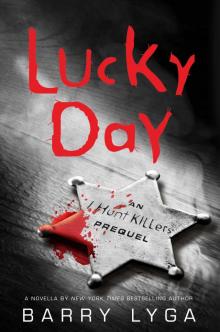 Lucky Day
Lucky Day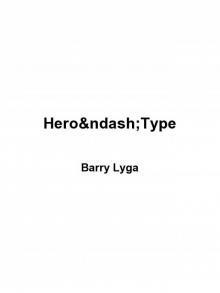 Hero-Type
Hero-Type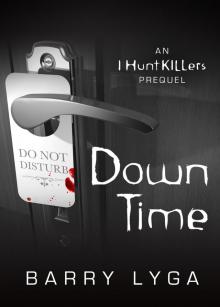 Down Time
Down Time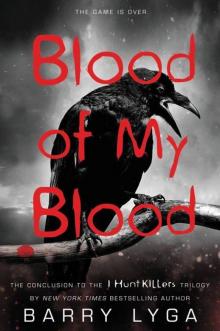 Blood of My Blood
Blood of My Blood Goth Girl Rising
Goth Girl Rising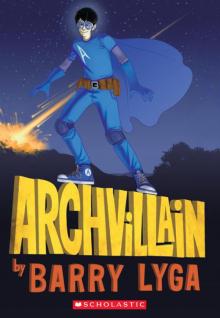 Archvillain
Archvillain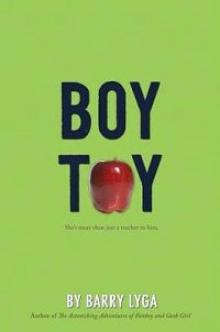 Boy Toy
Boy Toy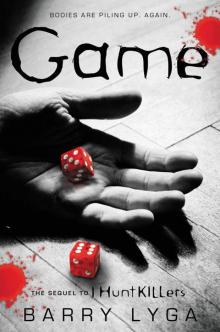 Game
Game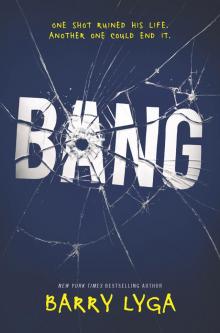 Bang
Bang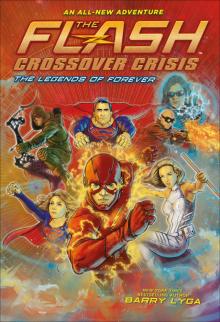 The Legends of Forever
The Legends of Forever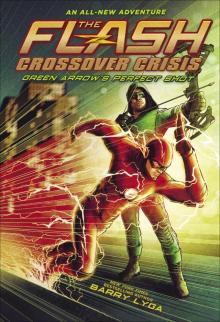 The Flash: Green Arrow's Perfect Shot
The Flash: Green Arrow's Perfect Shot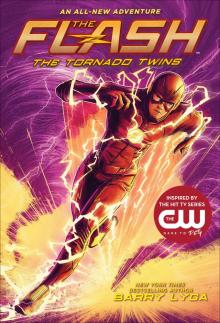 The Flash: The Tornado Twins
The Flash: The Tornado Twins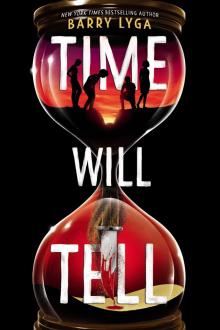 Time Will Tell
Time Will Tell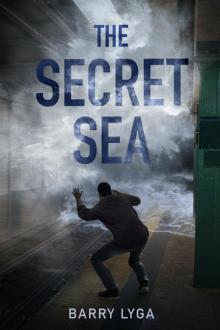 The Secret Sea
The Secret Sea The Hive
The Hive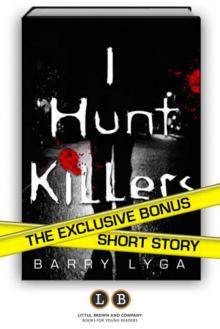 Career Day
Career Day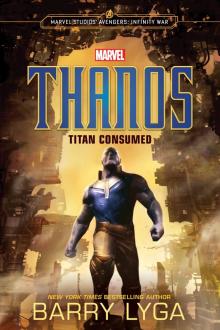 MARVEL's Avengers: Infinity War: Thanos
MARVEL's Avengers: Infinity War: Thanos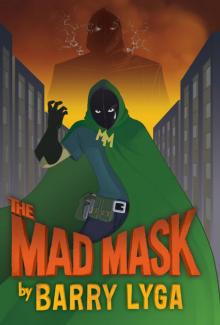 The Mad Mask
The Mad Mask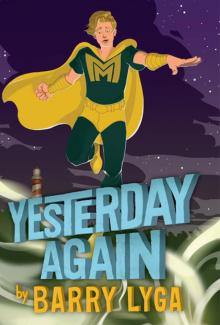 Yesterday Again
Yesterday Again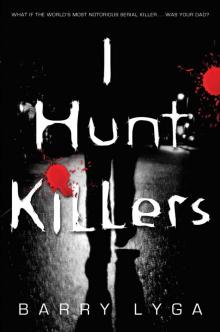 I Hunt Killers
I Hunt Killers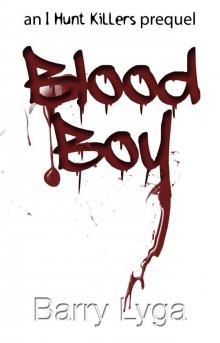 Blood Boy
Blood Boy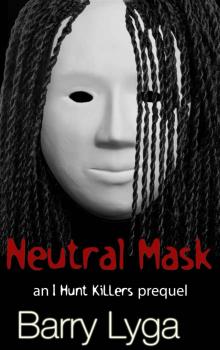 Neutral Mask
Neutral Mask The Astonishing Adventures of Fanboy and Goth Girl
The Astonishing Adventures of Fanboy and Goth Girl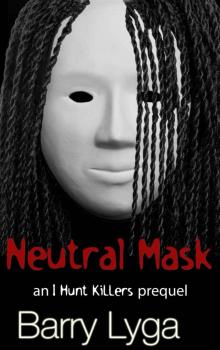 I Hunt Killers Neutral Mask
I Hunt Killers Neutral Mask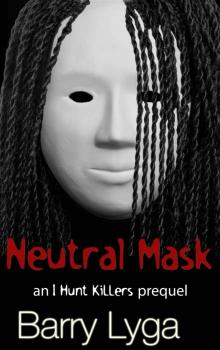 Neutral Mask: an I Hunt Killers prequel
Neutral Mask: an I Hunt Killers prequel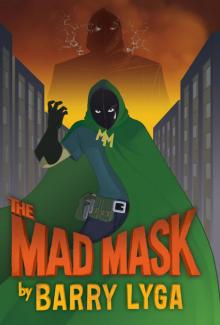 Mad Mask
Mad Mask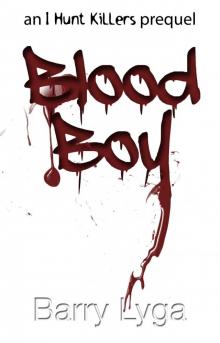 Blood Boy: an I Hunt Killers prequel
Blood Boy: an I Hunt Killers prequel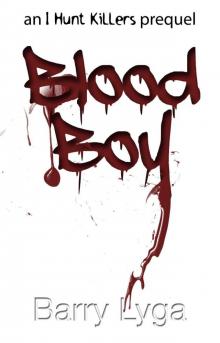 I Hunt Killers Blood Boy
I Hunt Killers Blood Boy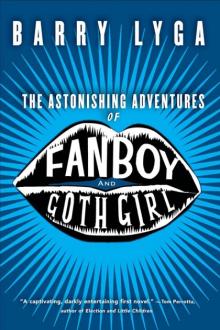 The Astonishing Adventures of Fan Boy and Goth Girl
The Astonishing Adventures of Fan Boy and Goth Girl